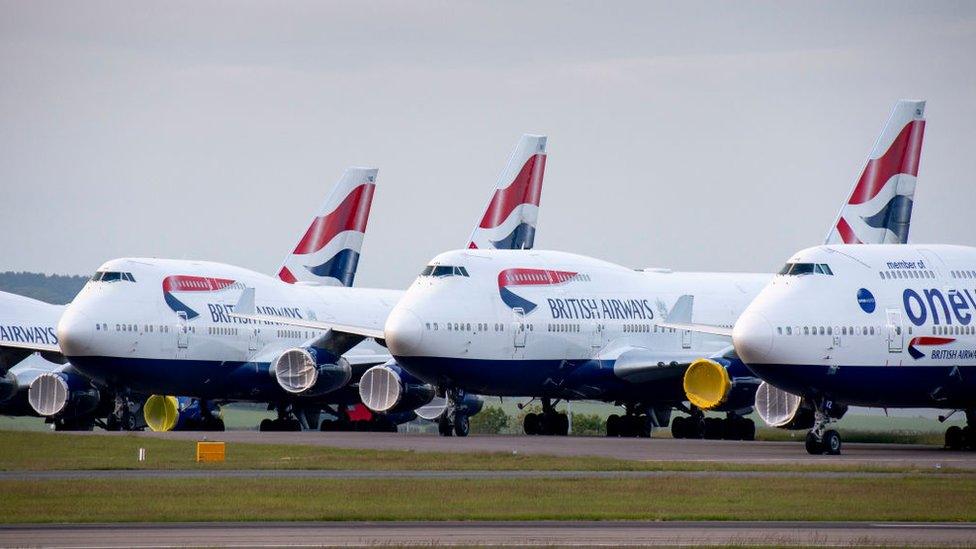Broughton Airbus job losses a 'hammer blow' to the area
- Published
Airbus: "Most people who live in the area, work here"
When the fortune of a town is so inextricably linked to one employer, any threat to jobs will have a "devastating" effect on the local community.
Airbus is to Broughton what Hoover once was to Merthyr Tydfil, Ford to Bridgend and Tata Steel still is to Port Talbot.
More people are employed at the Airbus factory than live in Broughton itself.
So it is little wonder jobs losses are seen as a "hammer blow" to the area.
The company said it planned to cut 15,000 jobs in total, including 1,700 in its UK sites at Flintshire and Bristol, as it dealt with the effects of the coronavirus crisis.
"The majority of people living in the area work there so [job losses] are going to be a great shame to a lot of people. I have family working there, everyone is going to impacted," said one resident.
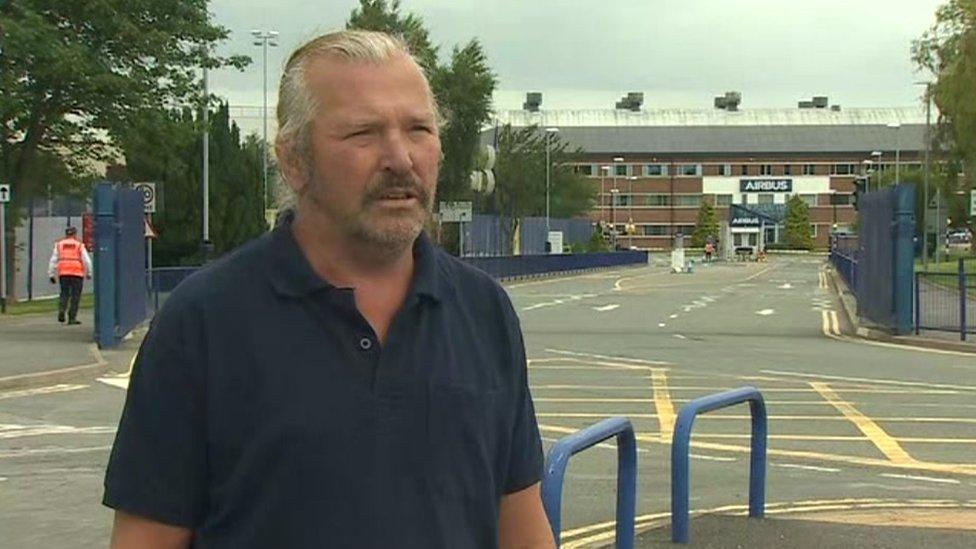
"I thought I had a job for life, I'm devastated," said worker Ross Leeding
Another added: "It's a big part of the community, one of the main sources of jobs around here. So if anything happens it would have a big blow - devastating.
On the shop floor, the mood has been "sombre" since the news broke.
"People are shocked and the uncertainty over numbers is only adding to that," said worker Daz Reynolds, of the Unite union.
"People have families to feed and they want to know what their future looks like at Airbus. It's simple.
"This is going to have a devastating effect. There are highly-skilled workers here but also thousands of people in the supply chain in towns and villages across north-east Wales and Cheshire. Everyone knows someone who works with Airbus."
'Devastated'
Agency worker Ross Leeding, already on furlough, added: "I wish they would tell us if we're being made redundant or not - not maybe. It's frustrating not to know.
"I'm devastated. I was happy here and thought I had a job for life here. I'm 60 years old now, so where am I going to get a job like this?
"There are others with kids, mortgages, loans who are worse off than me. It's the bread and butter for Broughton."
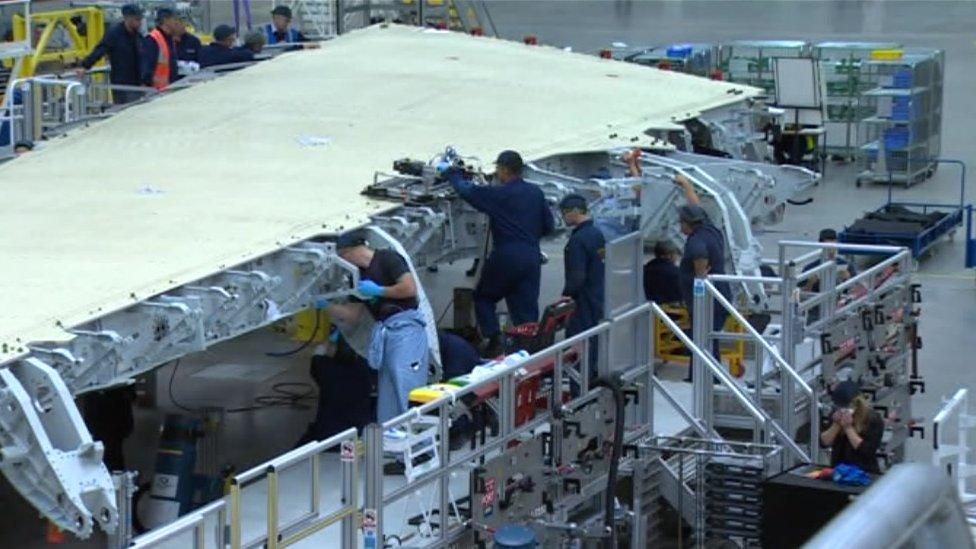
Airbus employs more than 6,000 people at its site in Broughton
The aftershocks from job losses are likely to ripple out across the entire region, to suppliers and the local economy that has been built around the success and size of Airbus.
Ben Francis, policy chairman at the Federation of Small Businesses, said it was "extremely worrying news".
He added: "The importance of Airbus to the north Wales economy cannot be overstated. There are families, communities, and small businesses who rely on Airbus, as does the wider regional economy."
Thomas Smith runs the nearby New Glynne Arms inn that relies on Airbus staff for trade.
"We rely on passing trade so if you take away thousands of people, it's terrifying to think what might happen," he said.
"It's going to affect the local economy big time because so many work there. You just don't know what the future is."
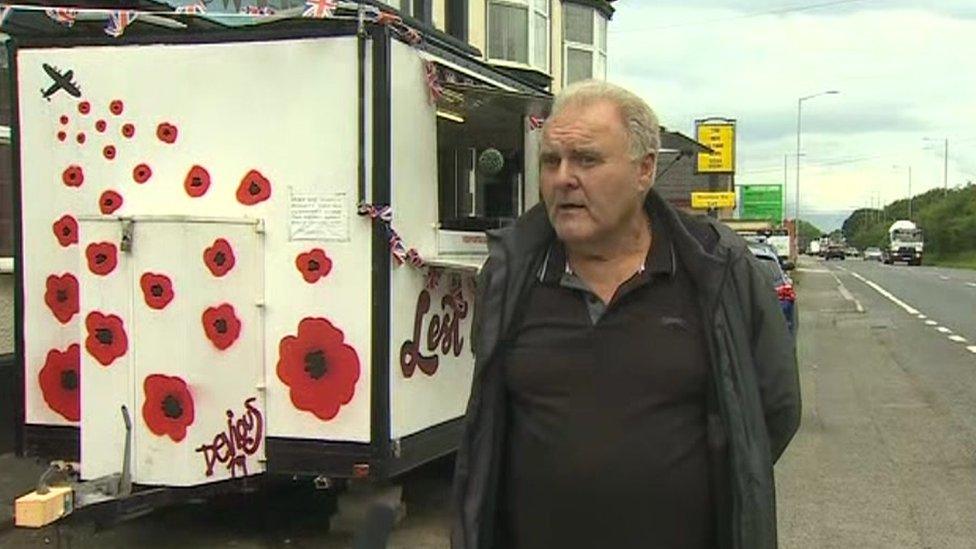
Local businesses will also be badly affected, said local pub landlord Thomas Smith
Wrexham MS Lesley Griffiths said the effects would be felt "throughout" the local supply chain and Flintshire council leader Ian Roberts said the factory was of "immense" importance for the county.
"It's devastating for Flintshire and the wider region - 50% of the workers come from outside the county," said Mr Roberts.
There is concern that job losses will not only affect current staff, but young people in the area.
Coleg Cambria in Connah's Quay offers engineering students an undergraduate apprenticeship with Airbus.
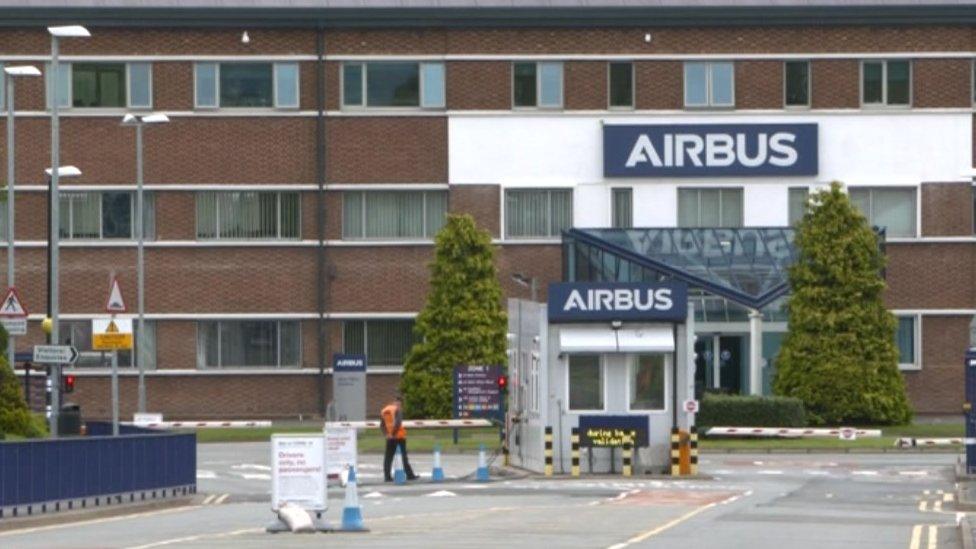
Thousands more people are employed in the supply chain around the Broughton site
David Jones, a former chief executive of the college, said the scheme was the biggest of its kind in the UK with 150 new apprentices joining each year.
"With older people and other workers that receive training, around 1,000 people are linked with Airbus training in Coleg Cambria and other colleges and universities," said Mr Jones.
"The goal now must be to win the contract to build a new type of wing that will be developed over the next five years.
"There are huge developments in the aerospace sector, meaning that wings will be produced in completely different ways to today.
"Whoever manages to secure that next contract, it will be hugely important regarding the long term future of wing building in north east Wales."
- Published1 July 2020
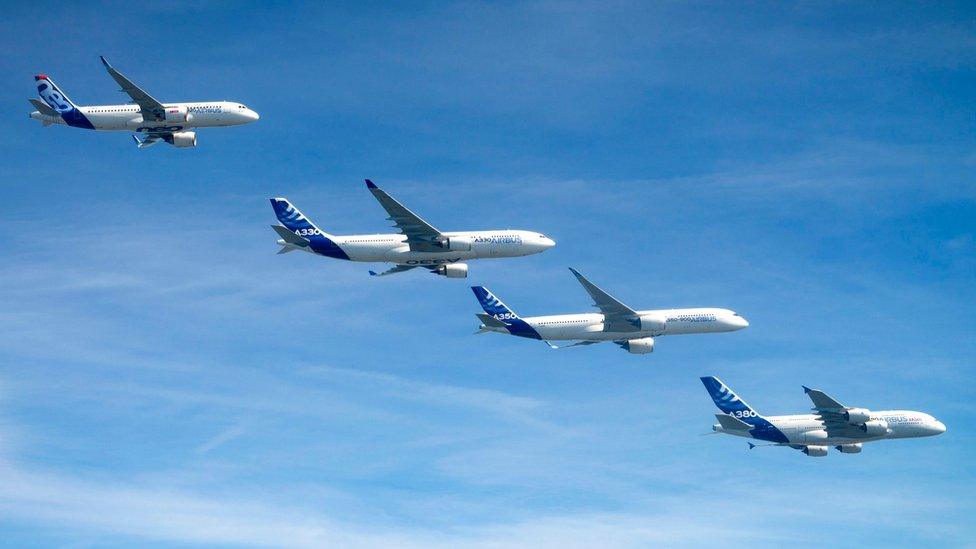
- Published27 April 2020
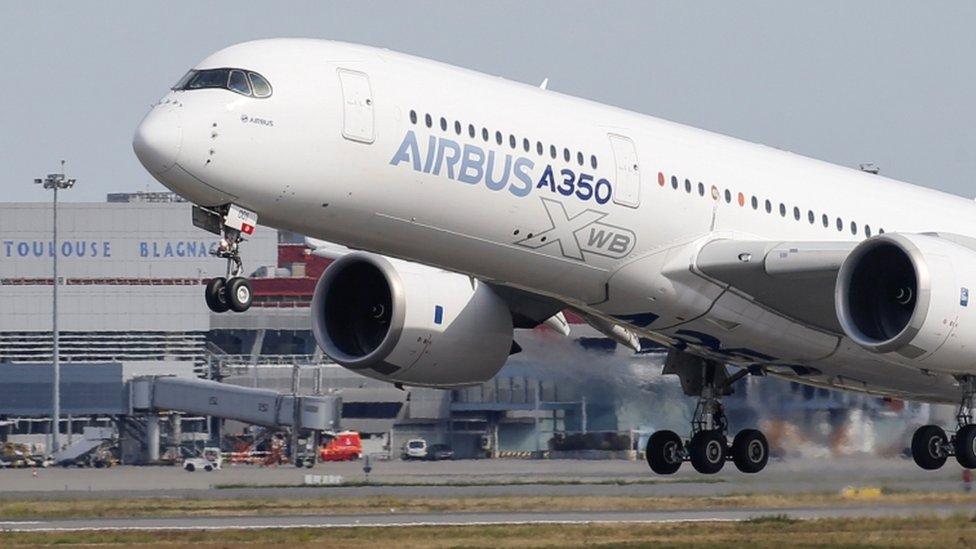
- Published20 May 2020

- Published24 June 2020
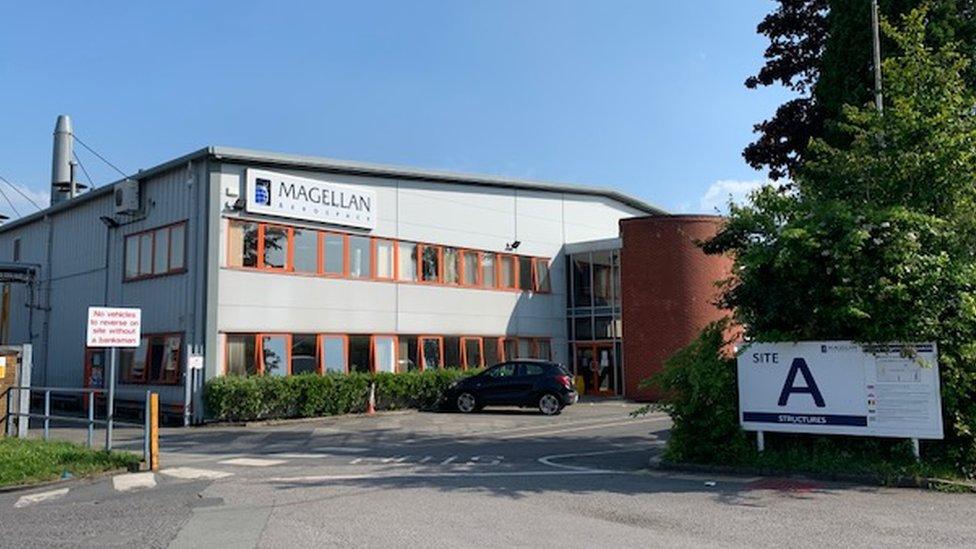
- Published21 May 2020
